Teams sail down Seine in soggy Paris Olympics opening ceremony
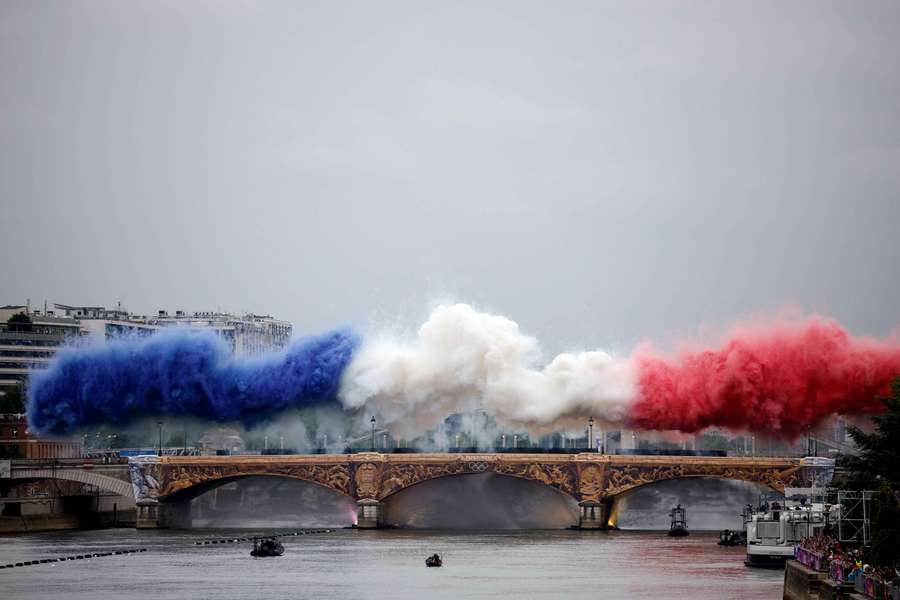
For the first time in Olympic history, the opening ceremony took place outside the main stadium with up to 7,000 athletes parading down the Seine past the historic monuments of the French capital.
In an ambitious, high-risk departure from past opening ceremonies, the athletes sailed in an armada of 85 boats instead of making the traditional walk around a running track.
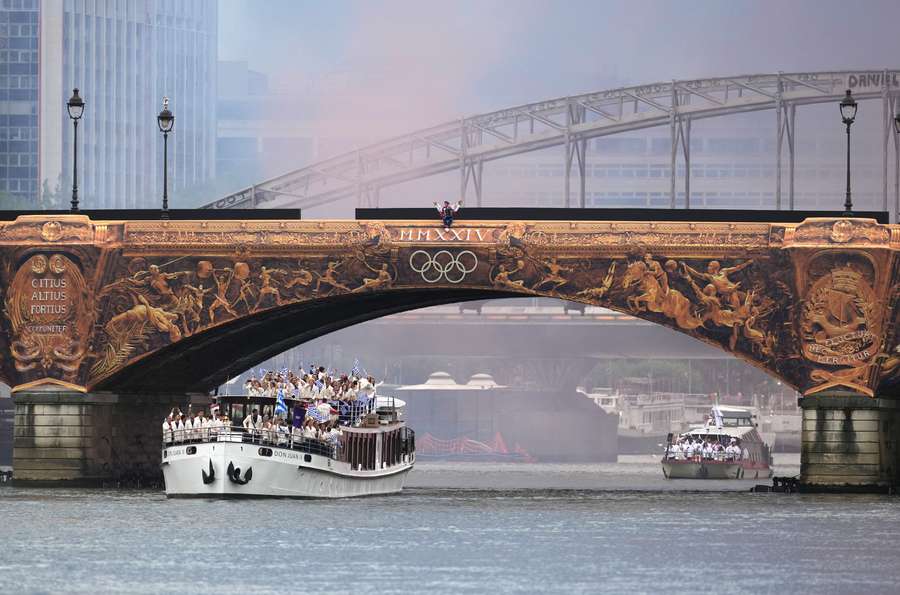
Some 300,000 people watched in person from specially built stands on the river banks, and another 200,000 from overlooking balconies and apartments.
As tradition dictates, the Greek delegation had the honour of leading out the flotilla, as the cradle of the modern Olympic movement.
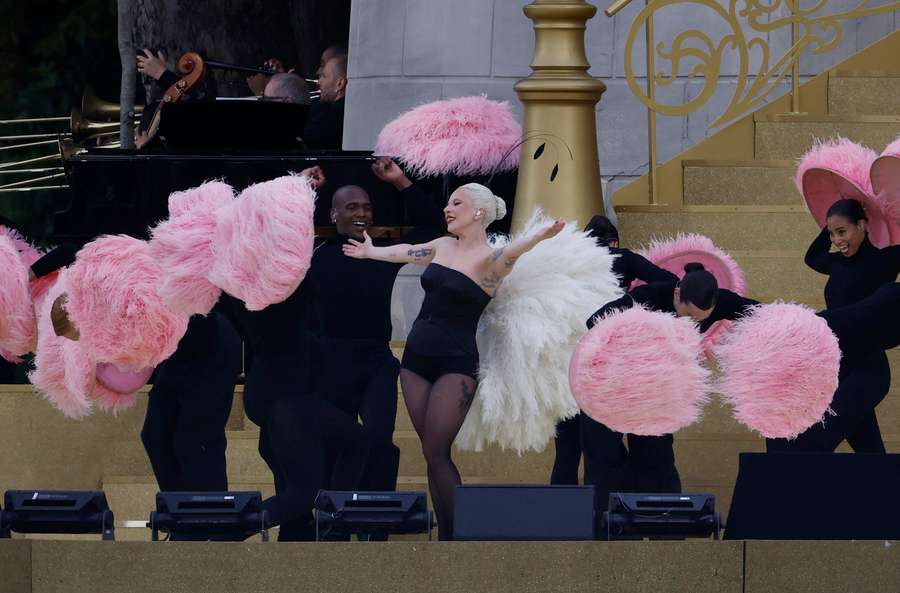
The show blended French culture and history while a pre-recorded cabaret-style segment from US pop star Lady Gaga featured prominently in the early stages of the parade.
Franco-Malian R&B superstar Aya Nakamura, the most listened-to French-speaking singer in the world, also sang, defying criticism from far-right activists.
Critics had accused the 29-year-old singer, best known for her hit Djadja, of "vulgarity" and disrespecting the French language in her lyrics.
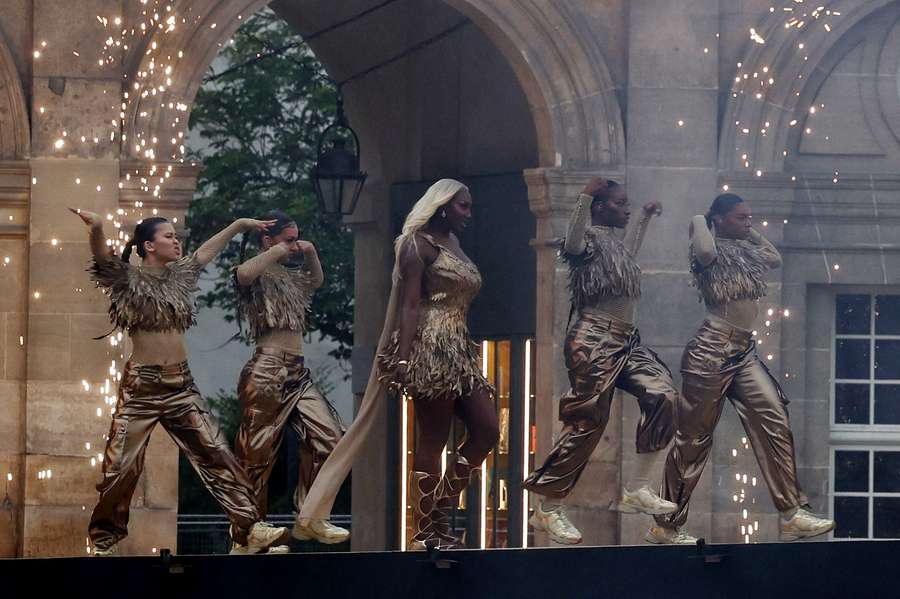
Dozens of pink-skirted can-can dancers provided a stunning splash of colour on the banks of the Seine in another standout moment.
The landmarks and architecture of the City of Light featured as a backdrop both to Friday's show and will play the same role for much of the sport afterwards.
Paris's vision is for a more cost-effective and less polluting Olympics than previous editions, with competitions set to take place at historic locations around the capital.
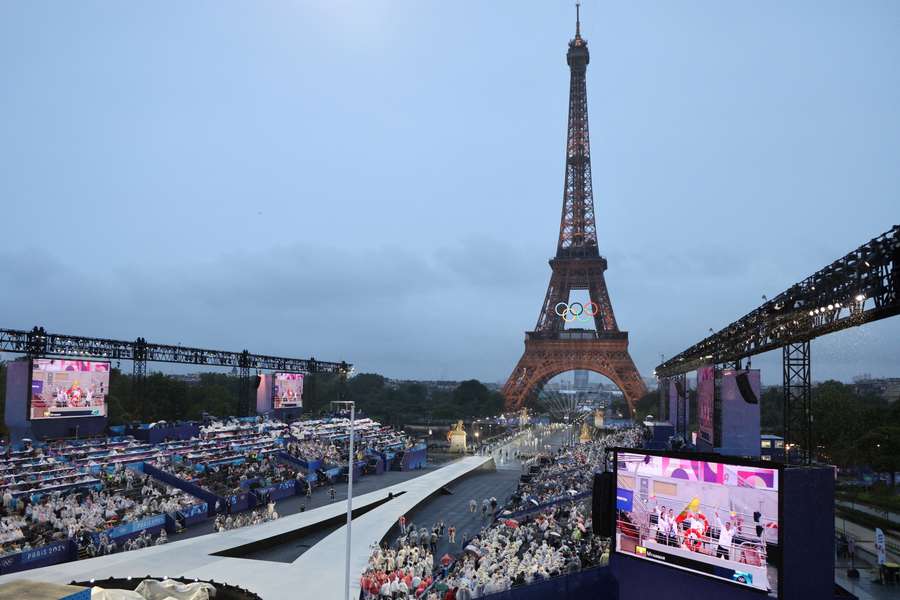
Despite the heavy rain, and a wave of attacks which paralysed France's high-speed rail network early Friday, chief Games organiser Tony Estanguet said before the ceremony started he was confident of putting on "a great party".
Some spectators refused to let the drizzle get them down. "I've got such an adrenaline rush. It's very exciting," said Selene Martinez, who had travelled from Mexico for the ceremony.
Long queues had formed at access points along the Seine hours before the start of the parade.
After passing scanners and checkpoints, the first arrivals discovered the numerous floating stages installed in the river channel and bridges that have been festooned with flags and the pink-and-purple colours of the Games.
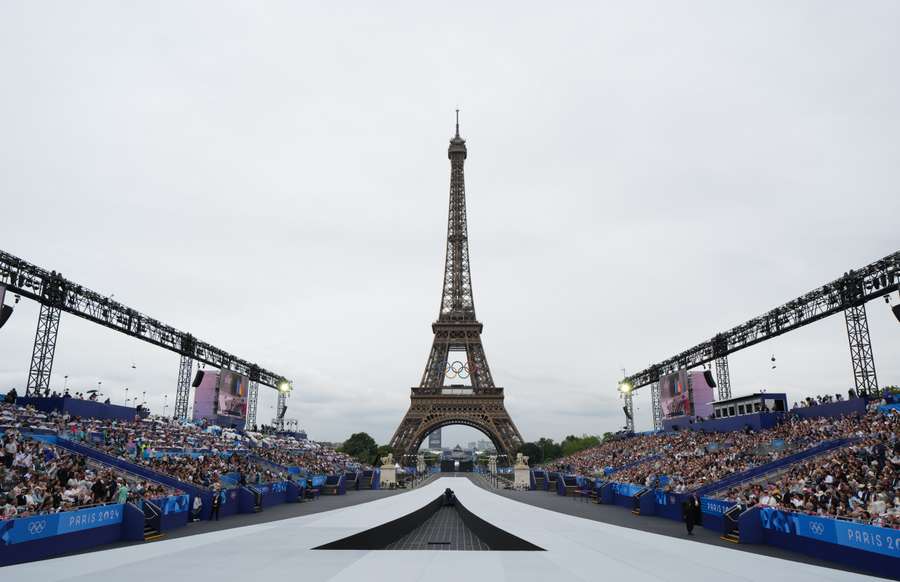
"The atmosphere is really friendly," said 75-year-old Frenchman Jean-Yves Herve, who watched the show with his granddaughter.
"There are lots of foreigners, we're enjoying it. It's good for France."
A huge security operation was in place for the ceremony, with a security perimeter erected along both banks of the Seine.
The ceremony was guarded by 45,000 police and paramilitary officers and another 10,000 soldiers and 22,000 private security guards will complete the security operation.
Police snipers were perched on vantage points along the river, which is overlooked by hundreds of buildings.
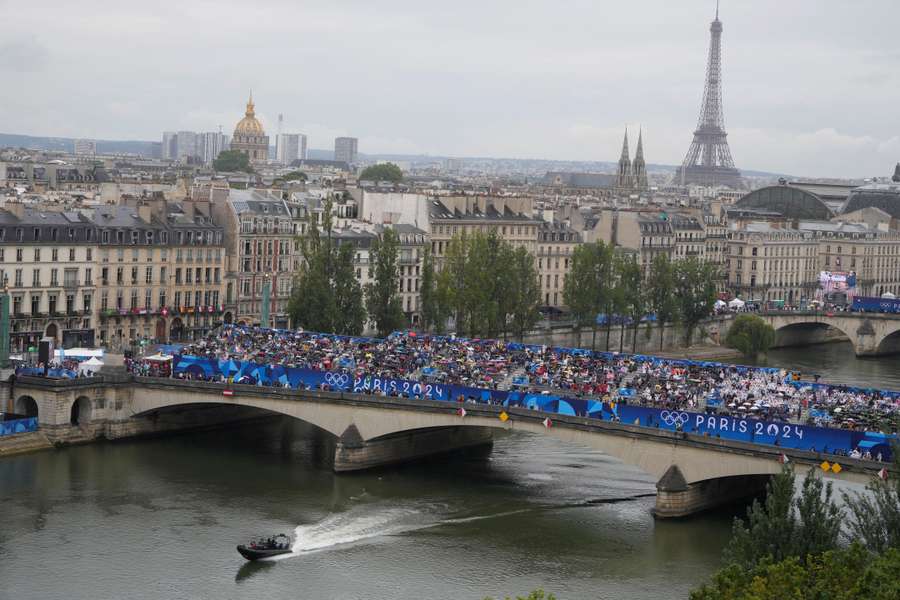
French security forces are on their highest alert to prevent terror attacks from spoiling the start of the first Olympics in Paris in 100 years, while acts of sabotage from hostile foreign powers were also a known risk.
French officials refused to comment on the identity of those responsible for the rail sabotage who appear to have had a sophisticated understanding of the network.
It affected 800,000 passengers and prevented some Eurostar services from crossing the Channel, preventing British sports fans from coming to the Olympics.
Far-left French anarchists have a history of targeting the train network with arson attacks.
Suspicions might also fall on Russia, which French President Emmanuel Macron has said in the past was planning to target the Games.

